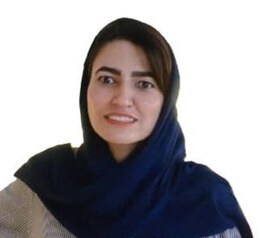9th Edition
World Heart Congress
THEME: "Heartbeat of Change: Inspiring Solutions for Global Cardiac Health"
 17-18 Nov 2025
17-18 Nov 2025  Dubai, UAE (Collaboration with the Armenian Cardiologists Association)
Dubai, UAE (Collaboration with the Armenian Cardiologists Association) THEME: "Heartbeat of Change: Inspiring Solutions for Global Cardiac Health"
 17-18 Nov 2025
17-18 Nov 2025  Dubai, UAE (Collaboration with the Armenian Cardiologists Association)
Dubai, UAE (Collaboration with the Armenian Cardiologists Association) 
NUS University, Singapore
Title: Blockchain-Enhanced Federated Learning for Global Heart Health Monitoring
Masoumeh Jafari received the B.S. degree in computer science from the Shahid Bahonar University of Kerman, Iran, in 2010, and the M.S. degree in computer engineering (software) from the Payame Noor University of Tehran, Iran, in 2016. She is currently pursuing the Ph.D. degree in computer engineering (software), at the University of Yazd, Iran. Since January 2020, she has been a diligent research assistant to Dr. Adibnia, and she is also working as a visiting student at the National University of Singapore (NUS) under the supervision of Prof. Biplab Sikdar. Her research interests include blockchain, big data, the Internet of Things (IoT), machine learning, telemedicine, security, privacy, and smart contract development using solidity.
Heart disease remains the leading cause of death globally, with 17.9 million annual fatalities reported by the World Health Organization. The rapid adoption of wearable Internet of Medical Things (IoMT) devices has enabled real-time cardiac monitoring, but also introduced significant challenges in data privacy, security, and integrity. Existing centralized systems face limitations in secure data sharing across institutions and geographic boundaries, while decentralized approaches such as federated learning still suffer from vulnerabilities during parameter transmission and model manipulation risks on central servers.
To address these challenges, we propose a novel architecture that synergistically integrates block chain technology with federated learning for global heart health monitoring. In our approach, cardiac data is collected via wearable IoMT devices and processed locally at edge gateways to generate machine learning models. Only encrypted model parameters are transmitted to a distributed block chain network, where smart contracts authenticate gateway identities, aggregate model updates, and maintain an immutable record of the evolving global model. This ensures robust data privacy, as raw patient data never leaves the local gateway, and enhances system security through cryptographic verification and access control.
Our method provides several key advantages over existing solutions: (1) enhanced data confidentiality and integrity, (2) decentralized trust and auditability via block chain, (3) continuous model evolution using federated learning, and (4) reduced communication overhead and latency through edge computing. Experimental results demonstrate improved accuracy in predicting cardiac events compared to traditional centralized and federated learning models. Additionally, our architecture exhibits strong resistance against common cyber threats such as man-in-the- middle attacks, model poisoning, and replay attacks.
The proposed framework supports global collaboration in heart disease prediction without compromising individual privacy or institutional data sovereignty. It is particularly beneficial for underserved regions, enabling remote monitoring and expert consultation through a secure, scalable, and transparent platform.